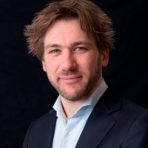Jelmer Schalk (Netherlands): Explaining tie formation in bipartite transnational private governance networks
Jelmer Schalk (Netherlands): Explaining tie formation in bipartite transnational private governance networks
Categories: Lectures and Seminars

5136 - SPPA Resource Centre Richcraft Building
1125 Colonel By Dr, Ottawa, ON
Contact Information
Mary Giles, 613-520-2600-2752, sppa.events@carleton.ca
Registration
Cost
Free
About this Event
Host Organization: SPPA
Hundreds of transnational private governance organizations (TPGOs) have emerged in recent decades to govern social and environmental conditions of production using voluntary standards. It is however poorly understood whether these organizations develop ‘communities of practice’, and if so, what drives the formation of such communities. Understanding tie formation among TPGOs can provide private governors with crucial strategic information to expand their labels, and inform governments on how to benefit from, and connect to, private governors through policy making. We assess whether tie formation is driven by a ‘peer referral’ mechanism, and by shared or complementary organizational characteristics, such as size, product focus, and certification stringency. Stochastic Actor-Oriented Models (SAOMs) are applied to test the hypotheses on four networks of in total 781 unique organizations in the field of sustainable agriculture between 2007 and 2017.
Jelmer Schalk is an assistant professor at the Institute of Public Administration at Leiden University in the Netherlands. Between 2014 and 2018, he also was the Director of Studies and a member of the board of the Institute. Jelmer obtained his PhD in sociology from Utrecht University, and has also been affiliated with the Eller School of Management at the University of Arizona, and the Netherlands Institute for Social Research. His research focuses on inter-organizational networks and performance outcomes using social network analysis in various sectors, including education, health and human services, and sustainability. Currently, he is studying the community formation in the field of transnational private standard setting, the development of the transnational network of security regulators, and the effects of board interlocks and gender diversity on school performance in the Netherlands, Denmark, and the US.